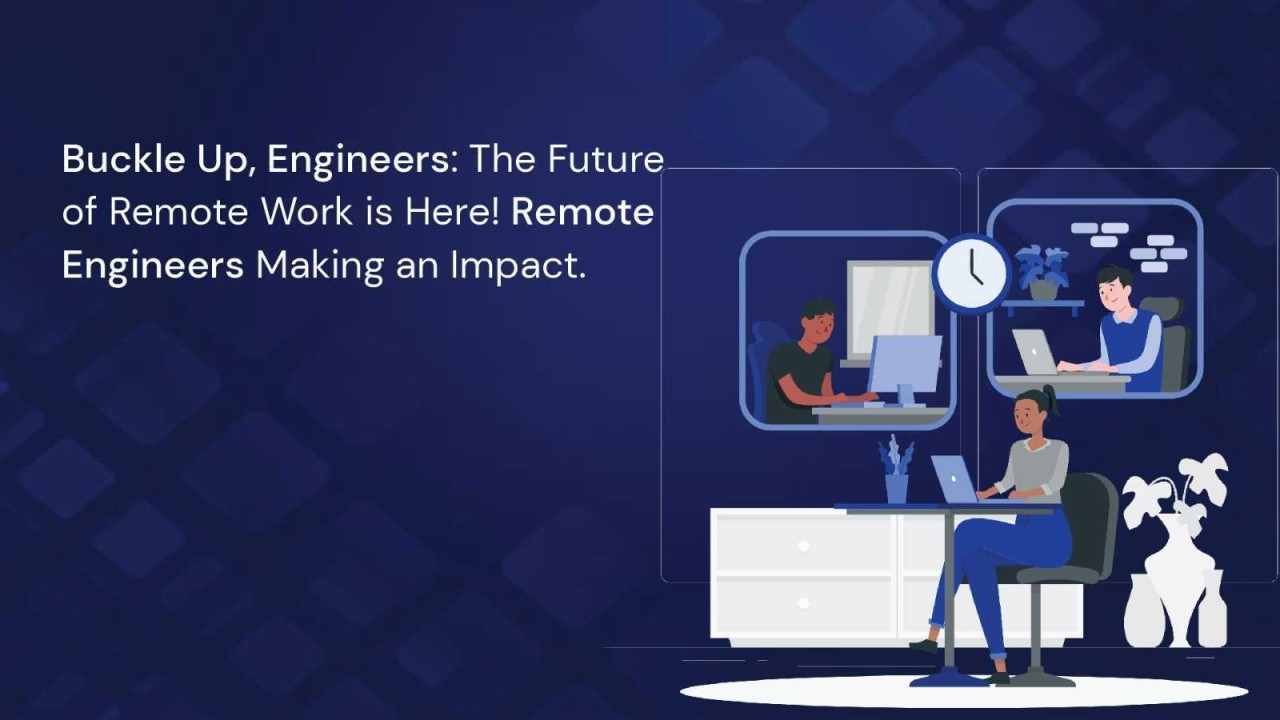Physical address:
573 Hutchinson Ln, Lewisville, TX 75077, USA.
Introduction
The way we work has undergone a seismic shift. Remote engineering, once a novelty, is now a thriving reality. But what does the future hold for this dynamic field? Here’s a sneak peek at the trends and predictions shaping the future of remote engineering landscape:
1. The Rise of the Hybrid Model: The Best of Both Worlds
Picture this: You tackle complex problems in your home office, then brainstorm with colleagues in a virtual meeting room. The hybrid model, where remote and in-person work seamlessly blend, is poised to dominate. This approach offers flexibility for engineers while allowing for crucial face-to-face interaction to foster creativity and team spirit.
2. Collaboration Gets a Tech Boost: Bridging the Distance Gap
Communication is the lifeblood of successful engineering teams. As remote work becomes more prevalent, expect to see a surge in advanced collaboration tools. Think real-time document editing, immersive virtual reality experiences for design reviews, and AI-powered communication platforms that streamline information flow.
3. The Global Talent Pool Beckons: Hiring Without Borders
Remote work transcends geographical boundaries. Companies can now tap into a global pool of exceptional engineers, fostering diversity of thought and expertise. This not only benefits businesses but also opens doors for talented individuals worldwide, creating a more inclusive engineering landscape.
4. Security Concerns Take Center Stage: Protecting Innovation
With a dispersed workforce, robust cybersecurity measures become paramount. Companies will prioritize data encryption, secure collaboration platforms, and employee training to safeguard sensitive information and intellectual property.
Related Articles you may find interesting
5. AI and Automation: Empowering, Not Replacing
Artificial intelligence (AI) and automation are poised to revolutionize workflows. Repetitive tasks will be streamlined, freeing up engineers to focus on higher-order problem-solving and innovation. AI can also assist in project management, data analysis, and code optimization, making teams more efficient.
6. The Soft Skills Advantage: Communication and Empathy Reign Supreme
While technical skills remain crucial, the ability to articulate ideas clearly, collaborate effectively, and build strong relationships with remote colleagues will be invaluable assets. Empathy will be key for understanding teammates from diverse backgrounds and fostering a sense of connection despite physical distance.
7. Well-being Takes Priority: A Happy Engineer is a Productive Engineer
Companies will recognize the importance of employee well-being in a remote setting. Expect to see initiatives promoting healthy work-life balance, combating burnout, and fostering a strong sense of community, even when teams are geographically dispersed.
Conclusion
The Future is Remote – Are You Ready?
The future of remote engineering is brimming with exciting possibilities. By embracing these trends and equipping yourself with the right skills, you can position yourself to thrive in this dynamic work environment. So, buckle up, engineers – the future is remote, and it’s looking bright.
Visit our linkedin account https://www.linkedin.com/company/telerelation/
Read more blogs


